Albania untamed
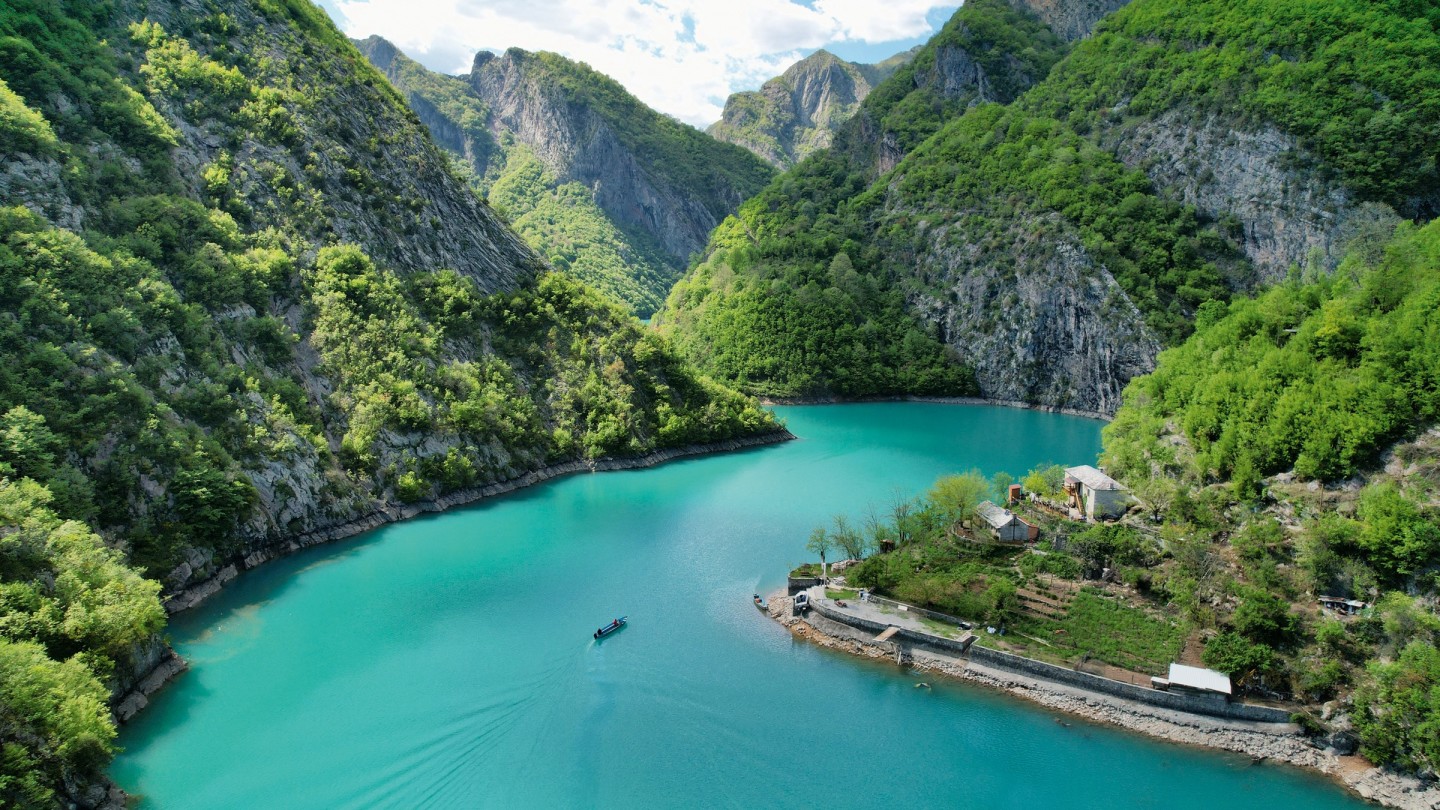
Roula Khalaf, Editor of the FT, selects her favourite stories in this weekly newsletter.
There’s a Himalayan wilderness on Europe’s doorstep. The fierce, brooding landscapes of Albania were sealed off from the world during a 46-year communist era, when those sailing to Corfu could only gaze across at its dark shores and wonder. Times have changed; Leonardo DiCaprio is now an advocate for the preservation of Albania’s rugged nature, and a substantial investment from outdoor brand Patagonia to safeguard the Vjosa, Europe’s last wild river, from human interference was announced last spring. Ryan Gellert, Patagonia’s CEO, embraced the cause after sleeping on the Vjosa’s riverbank seven years ago.
The protective effort comes at a pivotal moment. Albania’s Adriatic coastline was a popular beach break this summer as travellers came in search of undiscovered spots and budget-friendly prices. Faced with this inevitable boom in visitors, many are wondering how to preserve the wild essence that drew people in the first place.
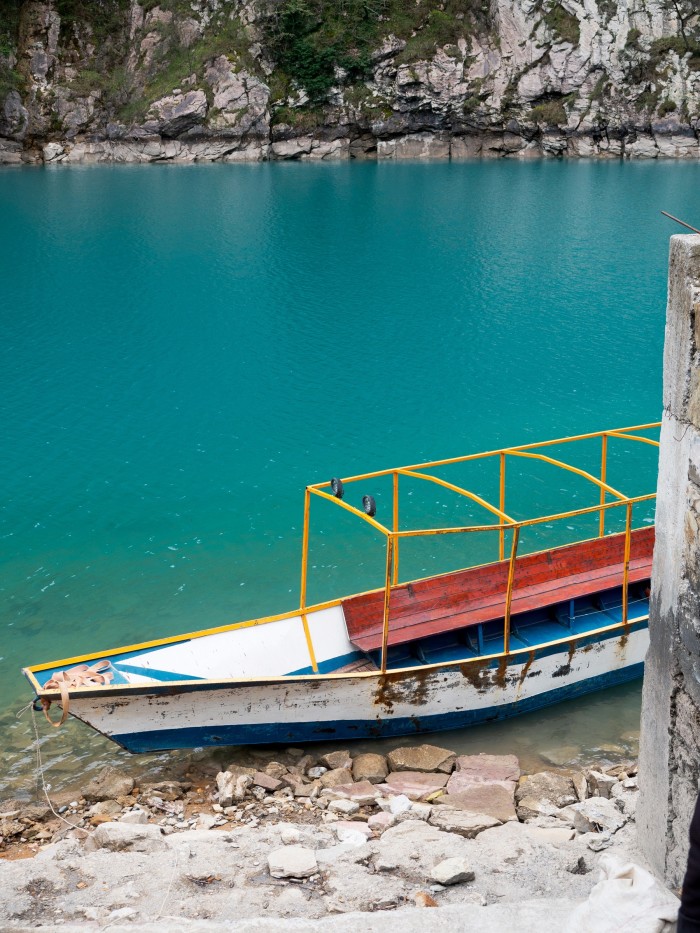
To find it, head deep into Albania’s hinterlands, where farmers-turned-guesthouse owners are practising a form of slow rural tourism that preserves Albania’s agrarian traditions and soulful hospitality, similar in spirit to Italy’s agriturismo farmstays. Among these is Albanik, a boutique agroturizëm tucked amid the forests and mountains of Vjosa’s Deshnica valley. Here, host Elona Bejo gathers the local bounty to lay on sumptuous meals in elegant interiors. She leads hikes along the Vjosa’s trails to gather medicinal herbs and explore the shrines of the Bektashi, a mystical Sufi order known for its whirling-dervish performances. While the Albanik experience is rooted in tradition, she has layered in modern touches like yoga retreats and vegetarian cuisine.
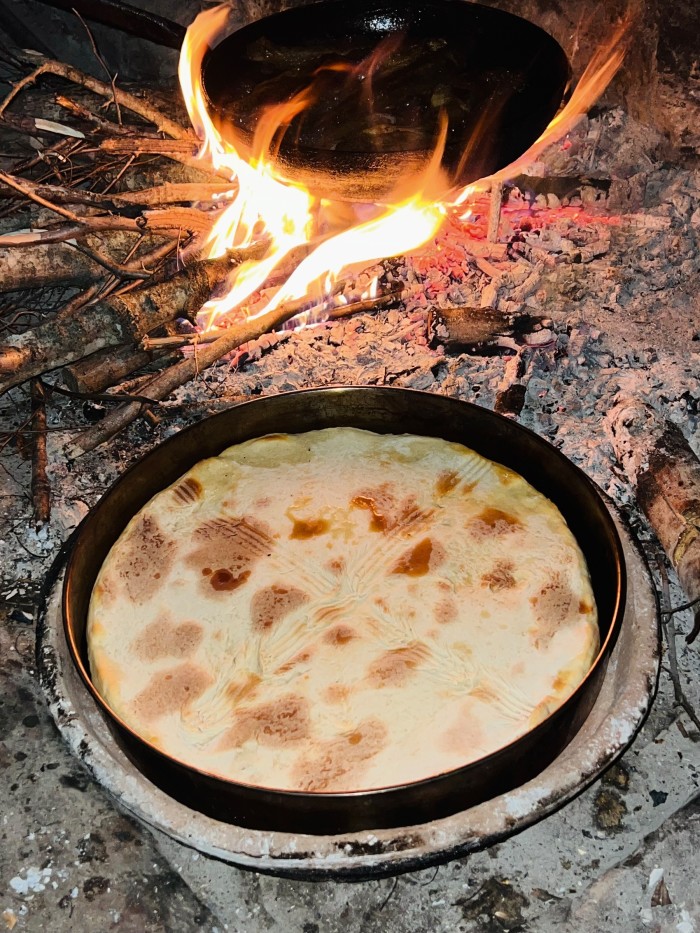
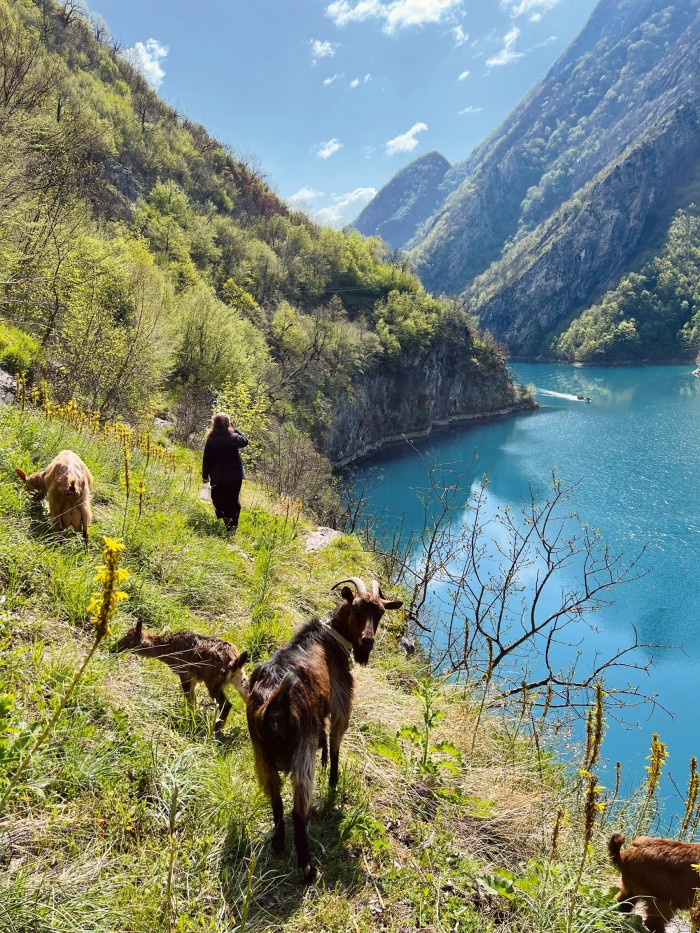
The continuity of sustainable practice has been relatively uninterrupted here in Albania, only briefly cast aside in the mid-’90s during the chaotic transition. Bejo explains that many locals tap into their parents’ knowledge without the need to delve too far back into history. She hopes visitors can glean insight from this self-sufficient existence: “Electrician, nurse, agronomist, vet, cook, inventor, carpenter… I am all these professions and many others,” she says as she posts a photo of herself soldering the broken plug of her laptop.
North of the Vjosa loom the Accursed mountains, the name alone irresistible to adventurers. Their dark rock towers and deep river valleys afforded protection to local Highland clans who organised themselves according to an ancient code, the Kanun of Lekë Dukagjini. While the Kanun’s blood feud laws have largely subsided (though money vendettas remain), its emphasis on honouring visitors perseveres.
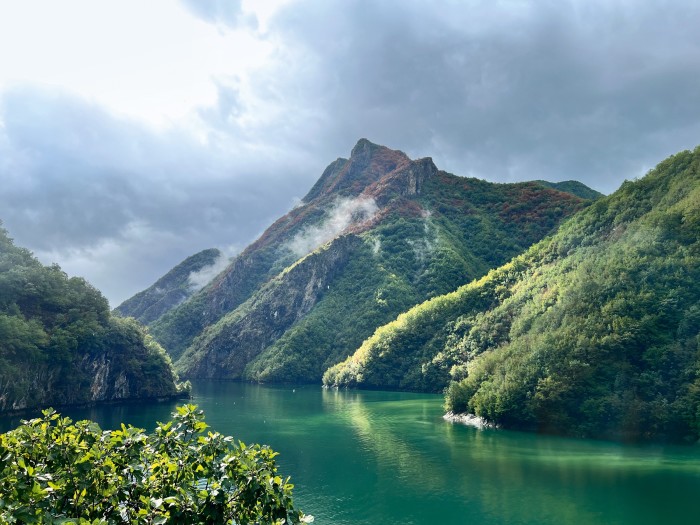
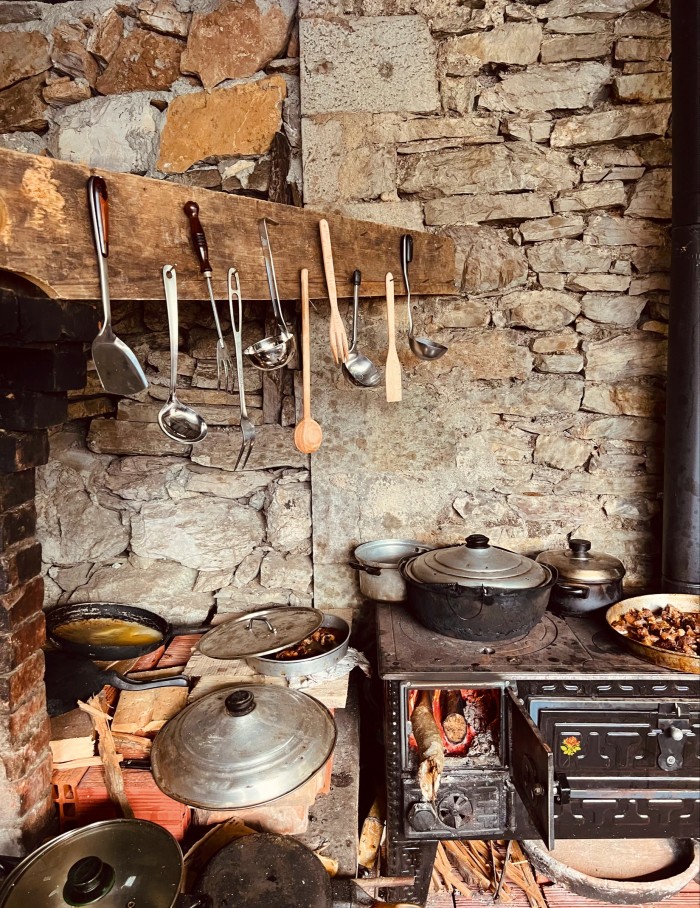
The maxim “the house of the Albanian belongs to the guest” reverberates through the numerous family-run agroturizëms dotting the Valbona valley. Accessible along the Peaks of the Balkans trail, an epic hiker’s journey based on old shepherd’s paths, these guesthouses remain largely unconnected by roads. Stani i Arif Kadris, on Gjarpërit mountain, Bashkimi guesthouse in the remote valley of Dobërdol, and Bashkim Trezhnjeva farmstay at Sylbicë village: they are simple but surrounded by beauty. The treks between them (five to eight hours per day) offer immense mountain vistas and the turquoise Valbona river below. Bears, wolves and lynxes roam the forests. One local farmer-guesthouse owner is already lamenting the asphalt road that was built across nearly all the Valbona valley, reaching his door. Before, guests would stay with him for a week in the wild. “Now they only stop for a quick coffee on their way,” he says.
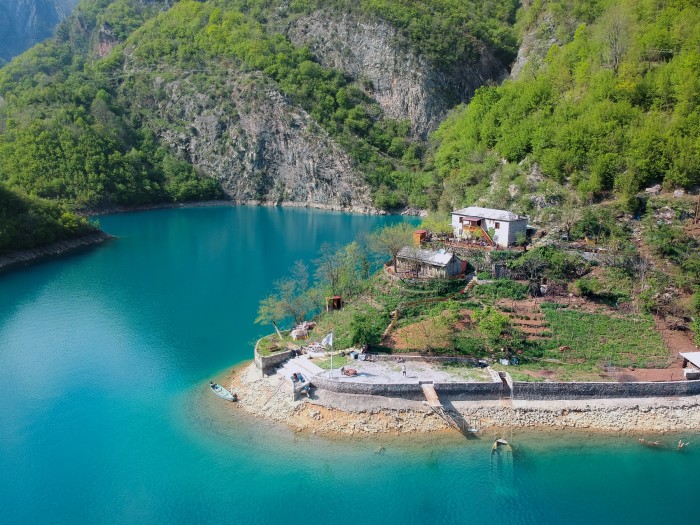
Neomalsore is accessible via a 70-minute boat ride through Lake Koman’s vertiginous canyon. The Molla tribe is particularly legendary for hosting here; for generations they have served passing travellers good food and wine and ferried them across the lake, ever honouring the Kanun. Neomalsore – meaning “new Highlander” – evinces a luxury of omission, not excess: everything is produced onsite with zero waste. Marjana Koçeku, the youngest daughter, a fair-haired Highlander who studied abroad before returning home to help her family run the guesthouse, considers sustainability “a new word”. “It’s a concept already printed in our blood,” she says, “from living in isolated places, from scarcity and endurance.” Here, seasonal fare is enjoyed by candlelight on sofra (low tables): flame-grilled fish, nettle soup, nutty cornbread and salted sheep’s cheese, served with pickled vegetables, yoghurt, foraged fruit and wild honey.
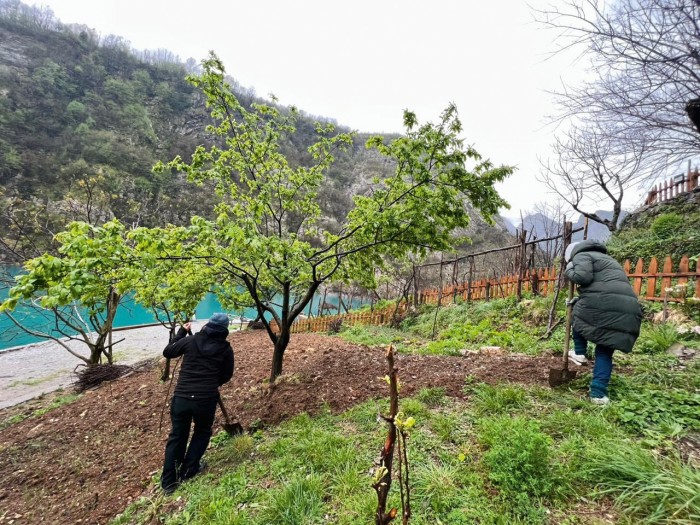
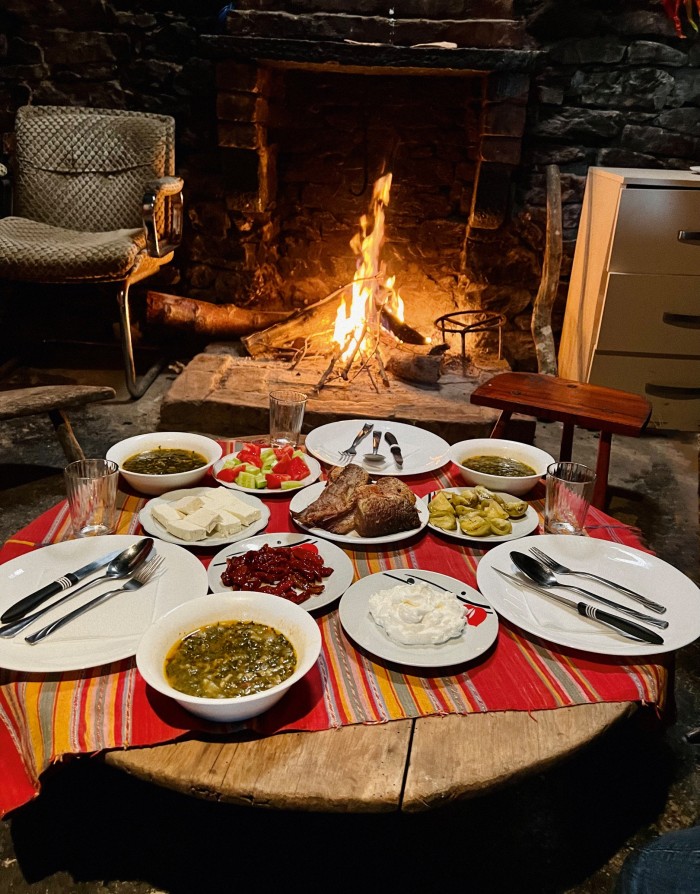
People come here to go “on flight mode”, says Koçeku. Summers here are warm and lived mainly outdoors. But in cooler seasons, in spring and September, when you arrive windswept from the boat, the family warms you up with rakia and çaj mali mountain tea by a blazing hearth. Guests can putter about in the skiff and fish, or swim in the jewel-blue lake followed by a Highland bath: water heated over flames, hair washed in ash for natural gloss. At night, the stars sing out from the darkness, untroubled by artificial light.
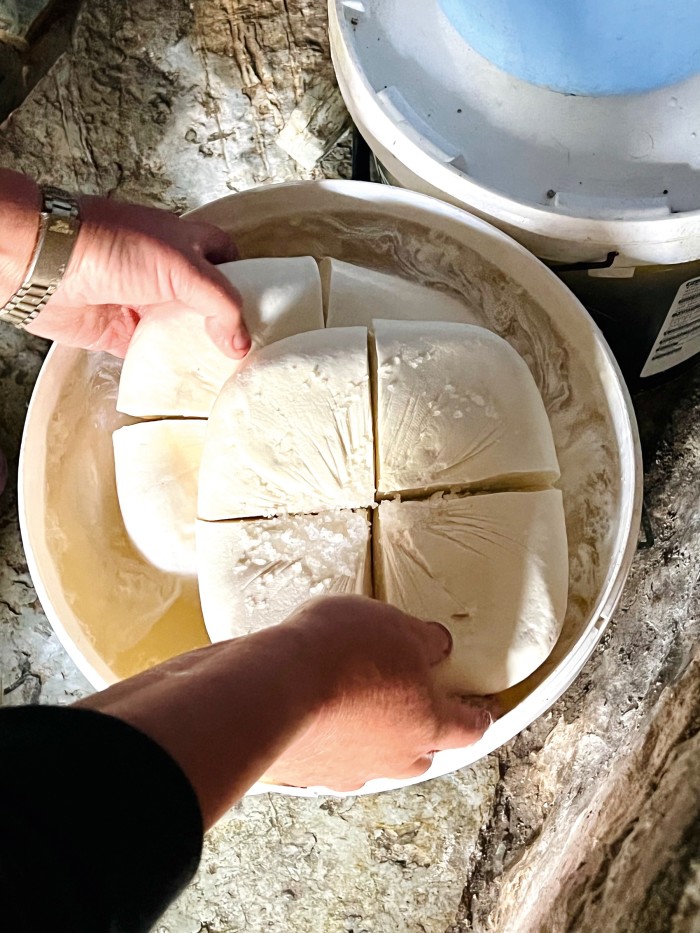
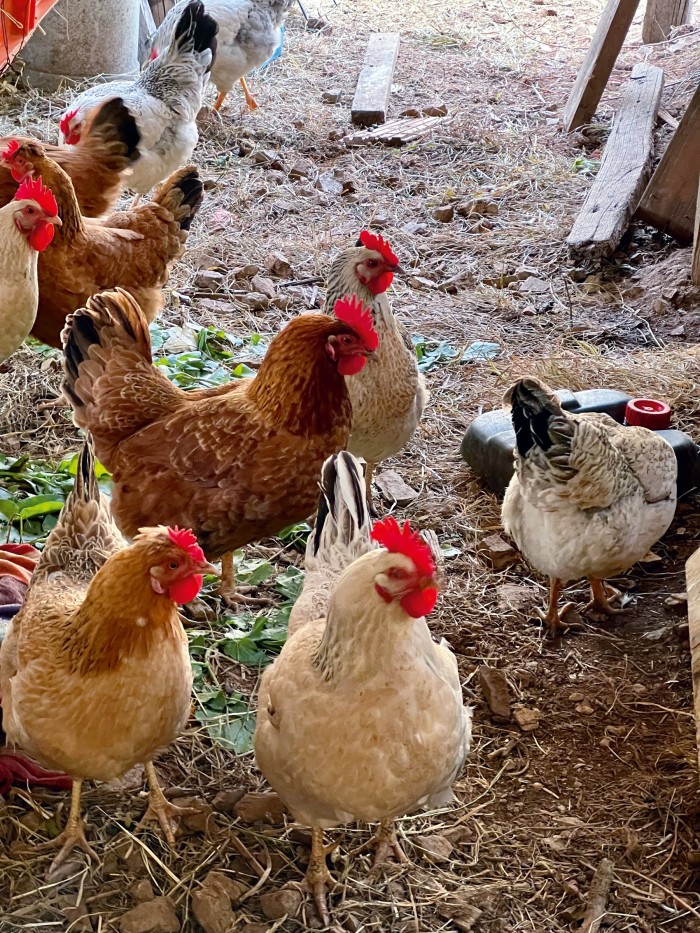
These retreats are repositories of living seasonally and rewilding. But Koçeku, Bejo and their kin recall the stigma Highlanders faced during the 2000s, when young Albanians hankered after urban prosperity. “People in cities called us ignorant and said we lived in caves. The young couldn’t see a future here so they left for London. Now I want to show them you can study at university, travel the world, and still go back to your roots and smell like goat,” Koçeku says.
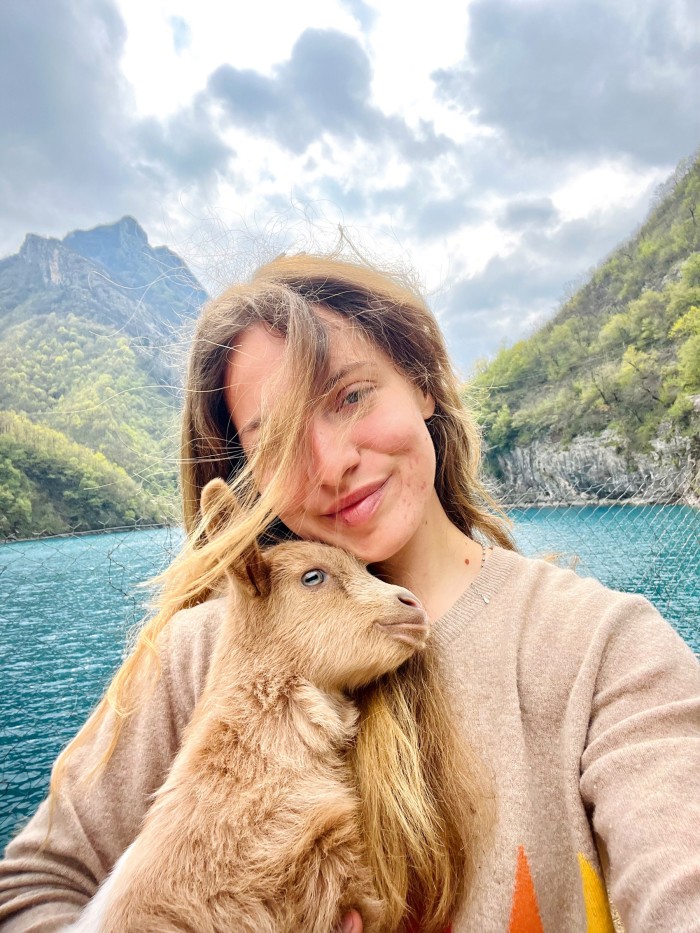
One byproduct of these agroturizëms’ seclusion is that the owners are active on social media. Koçeku’s Instagrams of her herding goats onto a boat (tagged “Noah’s Ark”) clock up likes in the tens of thousands. Using the platform to champion a simpler way of life is something she finds amusing: “Who would have thought that in less than 100 years we would go from ferrying clans across the lake in goatskin boats to hosting travellers from all over the world and posting it online. Whole centuries have passed before our eyes, the flip has been so fast.”
Three more Albanian adventures
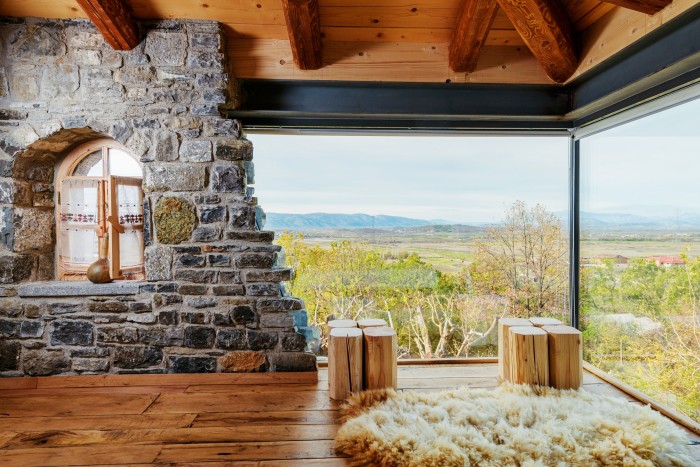
Mrizi i Zanave Agroturizëm, Lezhë
When chef Altin Prenga came back to Albania from Italy, he reimagined a ruined hilltop farmhouse into a stone-and-glass restaurant and farm with rooms. Meals are sumptuous, and staff are abundantly joyful (some are now TikTok “farmer-tok” comedic stars). The interiors recall Swiss mountain lodges, with sheepskin rugs and scents of oak and sage. Book well ahead; Mrizi is popular – its success encouraged Marjana and others to open their doors. mrizizanave.al
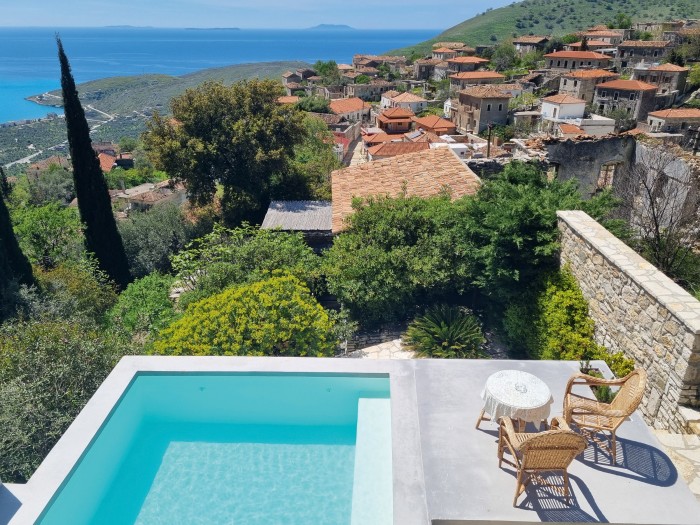
Les Villas de Qeparo
Between the towering communist hotels in south Durrës and Sarande lie unspoilt seaside gems, accessible via steep mountain roads that hug the Adriatic. After communism, most of Qeparo’s villagers fled to Italy, but people are coming back to turn their homes into boutique hotels and villas. Notable is Les Villas de Qeparo for its little pool and its sea and sunset views. lesvillasdeqeparo.com
Hotel Tradita, Shkodër
Tourism’s touch is barely felt at northern Albania’s lake Shkodër, save for the odd restaurant tucked along the shore lined with pontoons and fishing boats. At Balani or Syri i Sheganit, fishermen transform the humble lake carp into a culinary delight, simmering it in a sauce of dried prune rind and tomatoes. Stay in the old town of Shkodër, with its mix of Venetian and Ottoman architecture and bazaar. The eclectic but elegant Hotel Tradita throws lively restaurant parties at weekends. Several rakia will have you swaying to the thumping Balkan beat, while waiters weave expertly through the revellers with cheese fondues and great vegetable platters. traditagt.com
Camilla travelled with albaniantrip.com, which has partnered with Intrepid Travel to launch a wild eco-tour of Albania (intrepidtravel.com). Information on hiking trails is available at journeytovalbona.com
Letter in response to this article:
Preserving wild nature is not just about the picturesque / From Ulrich Eichelmann, RiverWatch — Society for the Protection of Rivers, Vienna, Austria
Comments